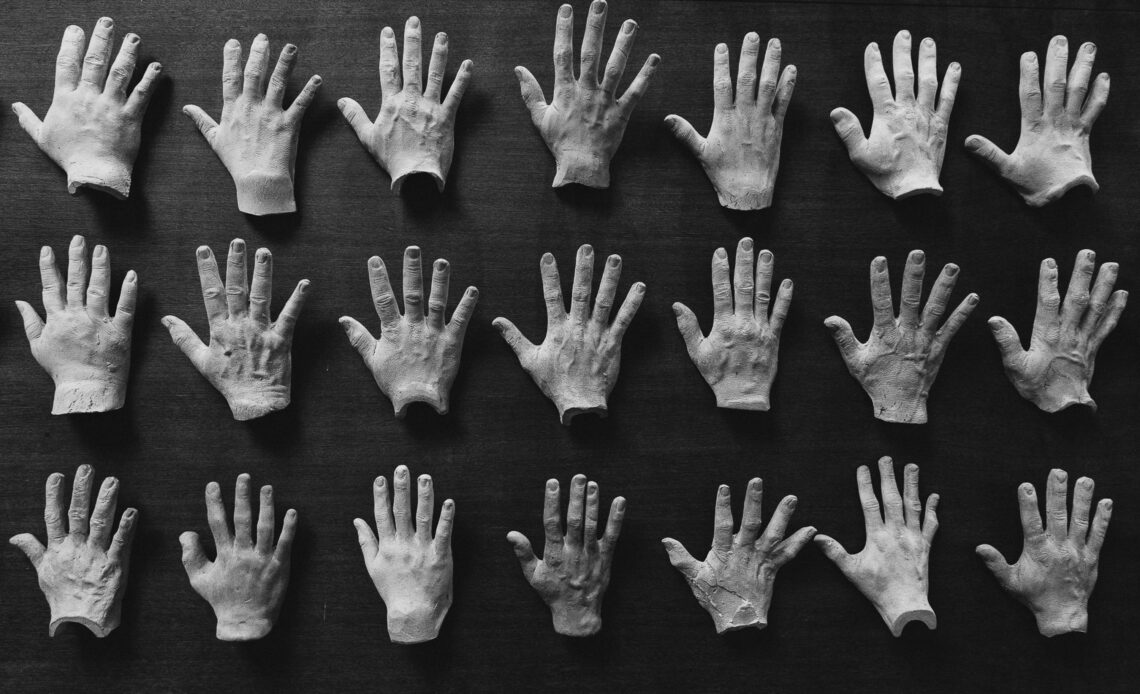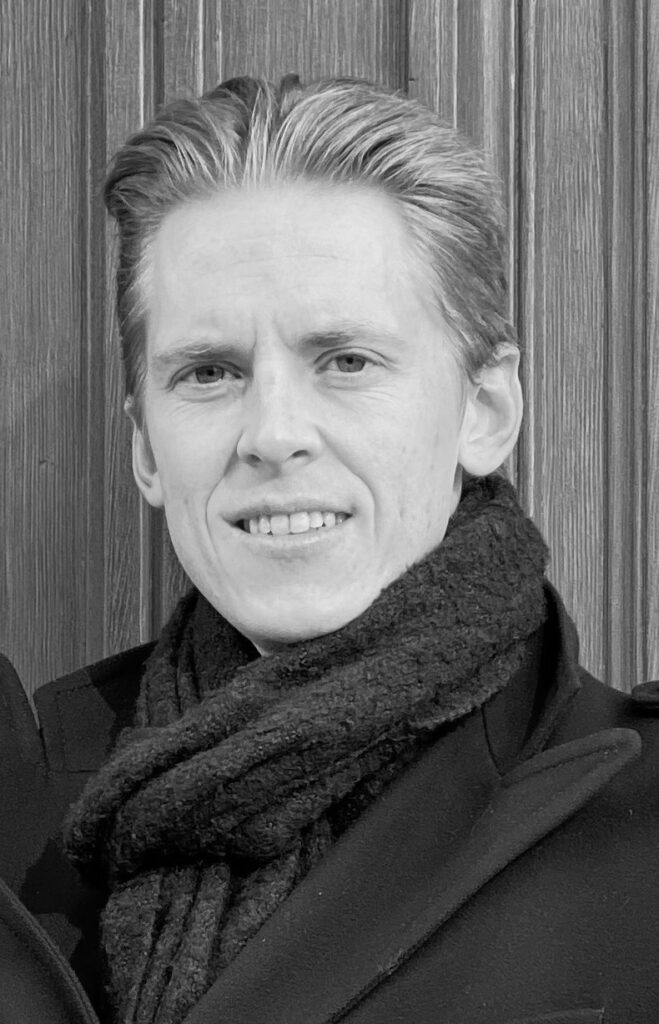
Event Report by Simon Elias Unteregger
On April 11th we left the premises of our Dach-Hub Birdview to meet for a public shared-discussion on artificial intelligence in the Salzburg Dombuchhandlung. Under the theme ‘Artificial Revolution‘: AI, Ethics, and Anthropology, we listened to statements from innovation and technology expert Mag. Lukas Madl and philosopher Dr. Jan Juhani Steinmann.
Dr. Steinmann opened the evening with his observation of a crisis of human self-perception. Materialistically viewed, he argued, humans are reduced to a “carbon heap” or to biochemical information structures, making them (us) malleable. Compared to machine efficiency and precision, humans can be perceived as inherently deficient – something that needs to be optimized – he referred to Neuralink at this point. Dr. Steinmann diagnosed a “new ideology” associated with the concepts of transhumanism and technical posthumanism, which must be distinguished from philosophical posthumanism. He questioned the idea of humans as malleable and thus optimizable matter, juxtaposing it with a Christian understanding of humans created in the image of God, as individuals with inherent dignity. He concluded by encouraging us to embrace our individuality and idiosyncrasies, urging us to become individuals once again.
In his statement, Mag. Madl provided us with an ethical perspective on technological innovations. He emphasized the importance of ethically questioning new technical products: Are they beneficial for our societies and individuals? We cannot solely strive for maximizing profit; technological advancements must contribute to human flourishing. He shared insights into the work of his company, Innovethic, where he and his team advise businesses and institutions on integrating ethics and technology. Mag. Madl also discussed the EU AI Act, explaining how legal measures aim to regulate the application of technology.
Following the statements, we engaged in discussions with all participants. We would like to express our gratitude for a wonderful evening to the Salzburg Dombuchhandlung, the two speakers, our cellist Janka Porkoláb, who accompanied us with Bach pieces throughout the evening, and to everyone who participated and deepened our conversation with their questions.
Watch the Panel here (in German):
“Chapters”:
- Introduction by Simon Elias Unteregger
- 12:06 Statement Dr Jan Juhani Steinmann
- 35:46 Statement Mag Lukas Madl
- 58:28 Johann Sebastian Bach: Cello suite in d-minor, Preludium – by Janka Porkoláb
- 1:05:33 Q&A
- 1:25:43 Johann Sebastian Bach: Cello suite in d-minor, Allemande – by Janka Porkoláb
Rethinking “Transhumanism”:
Abstract of article The Menetekel of Transhumanism by Jan Juhani Steinmann (see below):
Abstact written by Verena Schnitzhofer
After around 2,500 years of the previously reigning Paradigm of Humanity, a shift towards a new Paradigm of Trans-Humanity seems to be emerging. In his article, The Menetekel of Transhumanism, Jan Juhani Steinmann elaborates, among other things, on how humanity is seen from a biblical-Christian perspective as a dignified, free, embodied person, endowed with a rational mind. (In German, a distinction is made between “Körper” (physical body) and “Leib”, which means an ultimately immortal, fused body-mind-soul unity, which is only as such alive and real.)
Steinmann points to the dangers and the possible tendencies towards overconfidence accompanying an increased reliance on technological transhumanism. In this new picture of humanity, the human is neither genuine substance nor being, but is merely seen as a carbon-based complex of data, in need of optimization and overcoming, as it is deficient and mortal. To achieve this would increasingly require cyborgisation, which is understood as the integration of humans into machine systems or the placing of technical modules innovations in their physical bodies to enhance their capacities or abilities. Transhumanists see this as a “regulated continuation of evolution”, as humans per se have reached the end of their development as cultural beings.
In comparison with Christianity, Steinmann cites two more meaningful goals for humanity, namely, first of all, the imitatio Christi. Following this aim of Christlikeness would not result in the cognitive weakening of the “increasingly technically networked and informed human being” (p258) nor would it function as the “de-naturalisation of humanity” (p259). As a second aim, he proposes the cultivation of an ars digitalis, a body of information and guidance which would, through lived-out examples, provide a better guide towards genuine human flourishing in a digital context than would a mere catalogue of virtues.
Quotes translated from German.
Read the full article The Menetekel of Transhumanism (in German) by Jan Juhani Steinmann (to download this article as PDF, click on the button below):
By courtesy of “Verein katholischer deutscher Lehrerinnen e.V.”. Bibliographical quote to original publication: Jan Juhani Steinmann: Das Menetekel des Transhumanismus. In: „Katholische Bildung“, Verbandsorgan des Vereins katholischer deutscher Lehrerinnen e.V. (VkdL), Heft 11+12 / 2023, 124. Jahrgang, S. 252 – 261.
About the Author:

The philosopher, poet and theologian Dr Jan Juhani Steinmann (Personal Website) is currently researching poetic phenomenology with Kierkegaard, Nietzsche and Heidegger at the Institute Catholique de Paris and teaches as an external lecturer at the Faculty of Philosophy at the University of Vienna and the Ludwig Maximilian University in Munich. He innovatively combines philosophical theory with poetology, poetry and theology. In addition to his academic publications, he also publishes literary texts and volumes of poetry.
Book selection (in German):
- Ästhetik des Ungehorsams. Interventionen im digitalen Zeitalter (mit Albert C. Eibl, Wieser Verlag, 2024)
- Am Saum der Worte. Eine Wiener Musikpoesie (2021).
- Upcoming: Kritik der künstlichen Vernunft. Vorspiel eines Anathemas sowie Das Vorfaltenlicht. Die Alpen und das Valley (Castrum Verlag).
Foto Credit: Olivia Röllin
Featured Image, Foto Credit: Italo Melo | Pexels

